Our Directors
Our directors bring a wealth of experience, leadership, and deep commitment to our kaupapa, guiding us toward a future grounded in impact and innovation.
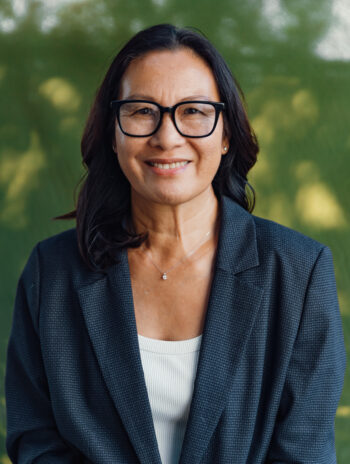
Prof. Jenny Lee-Morgan
Waikato, Te Ahiwaru, Ngāti Mahuta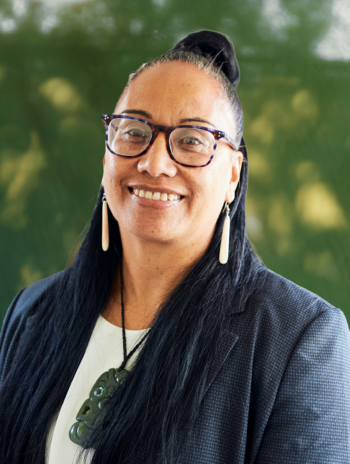
Ngāhuia Eruera
Ngāti Awa, Ngāi Tūhoe, Tūhourangi, Ngaiterangi, Ngāti Rangitihi, Ngāti Tamaterā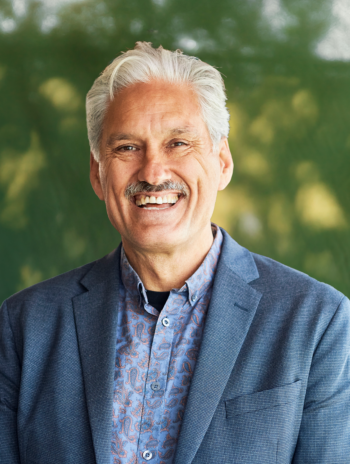
Prof. Rau Hoskins
Ngāti Hau, Ngāpuhi, Ngāti Wai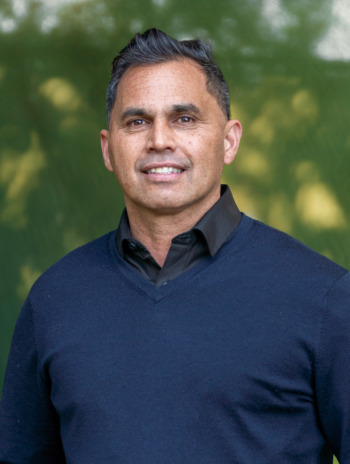
Eruera Lee-Morgan
Te Arawa, Pare-Hauraki, Pare-Waikato
Waikato, Te Ahiwaru, Ngāti Mahuta
Prof. Jenny Lee-Morgan
Prof. Jenny Lee-Morgan has a distinguished background in teaching and kaupapa Māori research. Jenny has led and contributed to several large community projects, including the Endeavour MBIE-funded ‘Generation Kāinga: Rangatahi Building a Resilient and Regenerative Aotearoa’, the Marsden-funded ‘Matike Mai Te Hiaroa #Protect Ihumātao’, and ‘Marae Ora Kāinga Ora’, among others. In 2016, she received the Te Tohu Pae Tawhiti Award from the New Zealand Association for Research in Education, recognising her high-quality research and significant contribution to Māori education. Jenny co-edited the award-winning book Decolonizing Research Indigenous Storywork as Methodology (2019) with Prof. Jo-Ann Archibald and Dr Jason De Santolo. Her most recent book, Tiakina te Pā Harakeke: Ancestral Knowledge and Tamariki Wellbeing (2022), was co-edited with Prof. Leonie Pihama.

Ngāti Awa, Ngāi Tūhoe, Tūhourangi, Ngaiterangi, Ngāti Rangitihi, Ngāti Tamaterā
Ngāhuia Eruera
Ngāhuia Eruera is a dynamic and values-driven leader with over 25 years’ experience in business strategy, kaupapa Māori advancement, and executive management. With a proven track record across the sports, wānanga, and research sectors, she brings sharp operational acumen and a deep commitment to whānau wellbeing and marae development. A proud ‘pa’ girl, Ngāhuia currently serves on the boards of Te Rūnanga o Ngāti Awa, Auckland Mataatua Society Inc and Te Tini o Toi Housing Trust. As a co-founding Director of Pūrangakura, she provides strategic leadership to ensure research is grounded in mātauranga Māori and driven by whānau, hapū and iwi. Her leadership is anchored in the principles of manaakitanga, kaitiakitanga and tino rangatiratanga, shaping enduring transformative impact across Aotearoa.

Ngāti Hau, Ngāpuhi, Ngāti Wai
Prof. Rau Hoskins
Prof. Rau Hoskins is a renowned practitioner, researcher and educator with over three decades of experience in Māori architecture, housing and cultural landscape design. Raised in Whangārei, he earned both his bachelor’s and master’s degrees in architecture from the University of Auckland. Rau combines kaupapa Māori design principles with skills in iwi engagement, urban design, Māori heritage, marae and cultural consultancy. In addition to his role as a director of Pūrangakura, he is also a founding director of design TRIBE architects, an architectural practice which specialises in cultural, health, urban design, marae and educational projects. Rau served on the Auckland Council Urban Design Panel from 2012 to 2020 and contributes to major developments including the City Rail Link and Aotea Over Station Development. He was the founding Chairperson of Te Matapihi he Tirohanga mo te Iwi, a national Māori housing network, and co-created the award-winning Māori architecture series Whare Māori, which won Best Information Programme at the 2011 Aotearoa Film and Television Awards.

Te Arawa, Pare-Hauraki, Pare-Waikato
Eruera Lee-Morgan
Eruera Lee-Morgan brings nearly two decades of experience working with iwi across Aotearoa on diverse projects, including Māori language revitalisation, broadcasting, education and social initiatives. With 30 years in media, and a recipient of multiple awards, Eruera is a skilled bilingual speaker and MC. He currently advises Te Taumata Arowai and NZ Transport Agency Waka Kotahi on integrating mātauranga Māori and te ao Māori values into public transport, urban design and regulatory frameworks. A recent graduate of WaterNZ’s Te Mana o te Wai course, he was invited to present on Te Arawa tribal waters. As a former Principal Advisor for the Ministry of Māori Development, Eruera is well-versed in government processes, policy and reforms, including Te Maihi Karauna and the Māori Media Sector Shift review. Committed to excellence in te reo Māori me ngā tikanga, he strives to elevate cultural consciousness and achievements for whānau, hapū, iwi and Aotearoa.
Our Pūrangakura Kaimahi
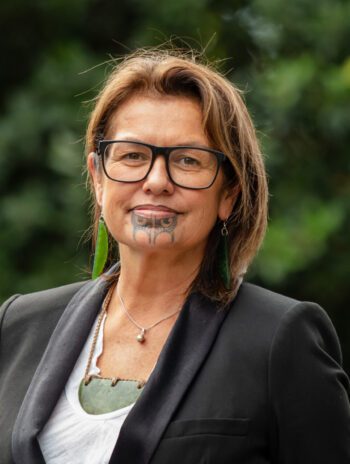
Prof. Mera Penehira
Ngāti Raukawa ki Otaki, Rangitaane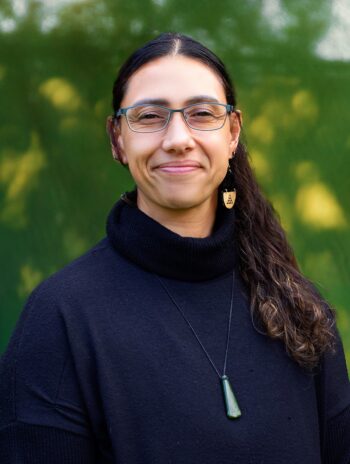
Luana Abraham
Ngāti Maniapoto, Kūki Āirani - Mauke, Rarotonga & Tahiti
Dr Emily Afoa
Ngāpuhi, Ngāti Maniapoto
Liliana Clarke
Ngāpuhi, Ngāti Porou, Te Rarawa, Waikato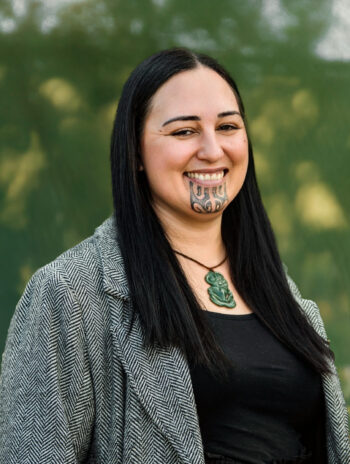
Irene Farnham
Ngāti Awa, Ngāi Tūhoe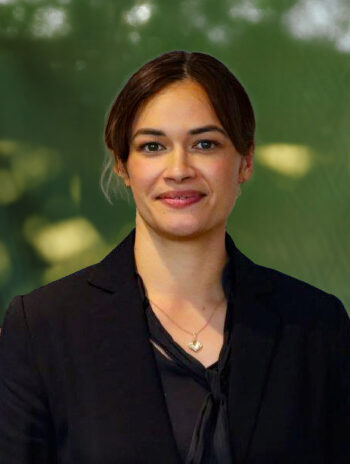
Jolene George
Te Whānau a Apanui, Ngāti Awa, Whakatōhea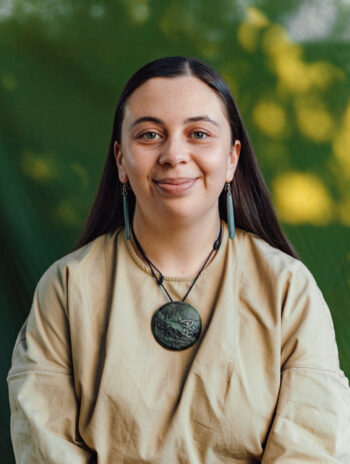
Rosa Hibbert-Schooner
Te Arawa, Ngāti Whakaue, Ngāti Awa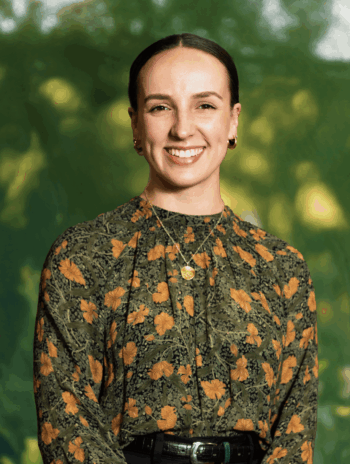
Ariana Hond
Taranaki, Ngāti Rangiwewehi, Ngāi Te Rangi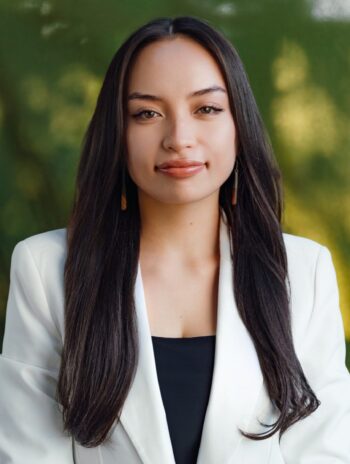
Escence Kingi Williams
Waikato Tainui, Ngāti Whawhakia, Ngāti Tūwharetoa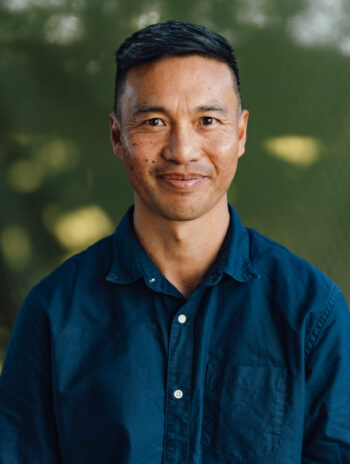
Stephen Lee
Waikato, Te Ahiwaru, Ngāti Mahuta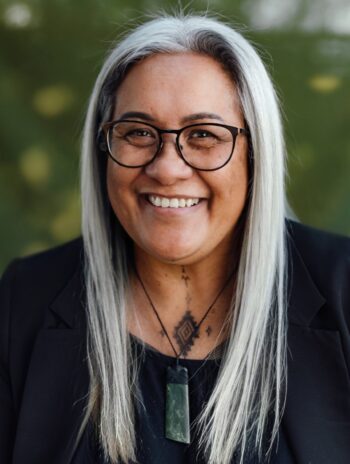
Bernadette Lee Te Young
Ngāti Whakaeke, Ngāti Rangi, Ngāti Mahuta, Te Ahiwaru, Ngāpuhi, Tainui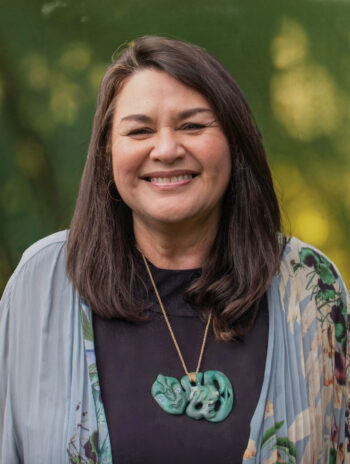
Dr Jo Mane
Ngāpuhi, Ngāti Toro, Te Popoto, Te Ngahengahe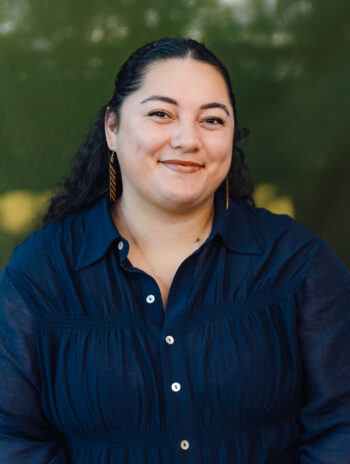
Hanna-Marie Monga
Ngāti Whātua, Te Uri o Hau, Cook Islands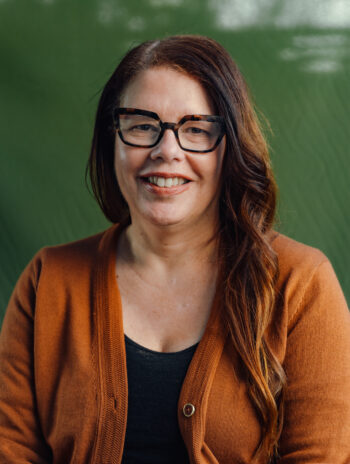
Dr Cat Mitchell
Taranaki, Ngāti Tara, Ngāti Haupoto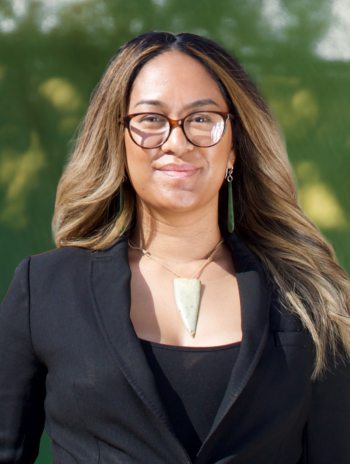
Jacqueline Paul
Ngā Puhi, Ngāti Tūwharetoa, Ngāti Kahungunu ki Heretaunga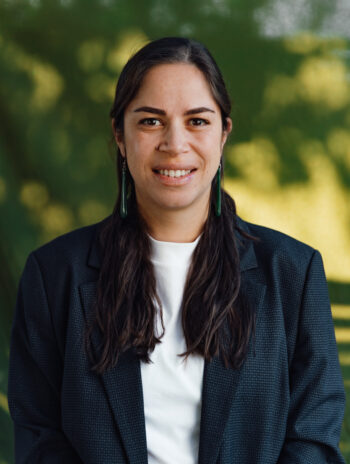
Maia Ratana
Ngāti Rangiwewehi, Ngāti Whakaue, Ngāti Te Roro o te Rangi, Ngā Rauru, Ngāti Raukawa ki te Tonga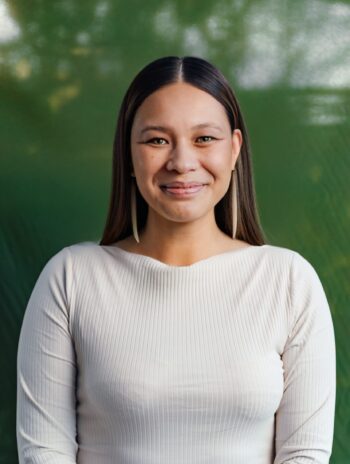
Caitlyn Te Moana
Ngāti Tūwharetoa, Ngāpuhi
Ngāti Raukawa ki Otaki, Rangitaane
Prof. Mera Penehira
Prof. Mera Penehira is Te Amorangi o te Rangahau Māori, Head of Research Excellence at Pūrangakura. Mera has been active in teaching, publishing and research more than three decades. She has coordinated and lead international Indigenous doctoral programmes across Aotearoa, Hawaii and Washington State. Mera’s teaching and research expertise is in Māori and Indigenous education and wellbeing, traditional knowledge and healing, sexual health education, and mana wāhine advancement and politics. Her research and teaching awards include the Ako Aotearoa Teaching Excellence award, Wharekura International Exchange Grant from the University of Auckland, the prestigious Hohua Tutengaehe Research Doctoral Fellowship in Māori Health from the Health Research Council (HRC), and a three year HRC Postdoctoral Fellowship. Mera is an immediate past board member of Te Kura Kaupapa Maori o Hoani Waititi Marae in West Auckland where she also resides. Mera is a founding member of Te Wharepora Hou, a Māori and Pacific women’s organisation committed to political actions that support Māori and Indigenous women, children and whānau to achieve and maintain rangatiratanga.

Ngāti Maniapoto, Kūki Āirani - Mauke, Rarotonga & Tahiti
Luana Abraham
Luana Abraham is a highly organised and driven professional with a wealth of experience in leadership, administration, and mentorship across various sectors. With over 20 years in Early Childhood Education, she’s refined her skills in mentoring, coaching and empowering individuals. Her experience also encompasses business management, governance, and community leadership, including roles such as Treasurer for the Mauke School Board and President of the Mauke Sports Association in Rarotonga. She has effectively managed complex projects, coordinated large-scale events, and handled multiple responsibilities, all while remaining committed to community engagement and personal development. She’s deeply passionate and dedicated to supporting initiatives that enhance the well-being of Māori, Pasifika and hāpori.

Ngāpuhi, Ngāti Maniapoto
Dr Emily Afoa
Dr Emily Afoa is a Chartered Engineer specialising in water sensitive design and the relationship between engineering practice and whole of catchment water systems. She joined Pūrangakura in March 2024 as a recipient of a ‘Ngā Puanga Pūtaiao Fellowship’ from the Royal Society of New Zealand Te Apārangi to undertake the research project, ‘Tiakina te wai: Reimagining the delivery of water services by engineers’. Since late 2024, Emily has taken on the co-leadership of the Wai Ora Kāinga Ora project alongside Prof. Jenny Lee-Morgan. Emily is a Pou Whakarae, Director of Tektus Consultants, a professional services firm delivering collaborative, multi-disciplinary solutions across engineering, environmental, and planning professions. As a kaupapa Māori researcher and engineer in leadership roles, Emily is shaping her engineering practice centering mātauranga and tīkanga Māori to make transformative change in the water sector, ultimately for the well-being of our communities.

Ngāpuhi, Ngāti Porou, Te Rarawa, Waikato
Liliana Clarke
Liliana Clarke is a passionate advocate for Māori, harnessing the power of science to uplift Māori communities. Liliana is a dedicated researcher and advocate for whānau, whenua and wai. Specialising in Geographic Information Systems (GIS) and natural resource management, she emphasises the significance of Te Maramataka and Te Whānau Marama in guiding sustainable environmental practices and cultural decision-making. As Te Ao Māori Lead for the National Science Challenges, Liliana has worked closely with Māori landowners to ensure that land-use decisions reflect cultural values and traditional knowledge. In her mahi at Pūrangakura she draws on kaupapa Māori approaches to environmental restoration and community-led research to support the aspirations of kāinga. Currently, she is pursuing her PhD at the University of Waikato, exploring the integration of maramataka and other traditional Māori knowledge systems in contemporary environmental management.

Ngāti Awa, Ngāi Tūhoe
Irene Farnham
Irene Farnham is a kaupapa Māori researcher at Pūrangakura, with a background in social work and a passion for empowering Māori communities. Witnessing the systemic undervaluing of Indigenous ways of being, she is dedicated to creating meaningful change. Irene has extensive experience providing cultural support, guidance, and education in social services, particularly in housing, youth services, and whānau advocacy. She completed her Master of Applied Social Practice, focusing on the gendered and racial challenges Māori women face in leadership. Her research and practice aims to amplify Māori voices and perspectives to benefit Māori communities. Irene is undertaking her PhD at Waipapa Taumata Rau, furthering her commitment to kaupapa Māori research and advocating for systemic change to uplift Māori well-being and self-determination.

Te Whānau a Apanui, Ngāti Awa, Whakatōhea
Jolene George
Jolene George is an environmental scientist committed to improving the health of waterways in Aotearoa by weaving together mātauranga Māori and western science. A Kairangahau Matua on the Wai Ora Kāinga Ora project, and a Master’s candidate at the University of Waikato, Jolene was awarded a scholarship to investigate biological tohu of groundwater health alongside traditional Māori indicators. With over 20 years’ experience across industry and in Crown Research Institutes, Jolene brings strong technical capability shaped by her background as a laboratory technician, account manager, and technical manager. Raised in the coastal community of Ōmaio and educated at Turakina Māori Girls’ College, she grounds her mahi in tikanga, careful observation and deep respect for the taiao. Inspired by her late uncle, Wiremu Tāwhai (author of Living by the Moon), she is dedicated to supporting whānau and hapū to restore their waterways and strengthen kaitiakitanga.

Te Arawa, Ngāti Whakaue, Ngāti Awa
Rosa Hibbert-Schooner
Rosa Hibbert-Schooner is an advocate for Māori student rights, equity, and cultural empowerment. With a deep commitment to rangatahi leadership, she has worked with Te Akatoki Māori Students’ Association to ensure Māori voices are heard and valued within education and beyond. Her advocacy for fair treatment and inclusive practices reflects her passion for addressing systemic inequities and uplifting her community. Rosa’s values align closely with Generation Kāinga, where her dedication to social change and housing justice contributes to empowering rangatahi Māori to lead transformative solutions for their whānau and kāinga. Rosa is the Manahautū, Start-up Lead for the Generation Kāinga Charitable Trust which has been established to support the educational and community development goals of the Generation Kāinga project.

Taranaki, Ngāti Rangiwewehi, Ngāi Te Rangi
Ariana Hond
Ariana Hond is an emerging researcher, actively developing her knowledge and nurturing her passion for action-focused community research. Ariana graduated with a Bachelor of Arts (Honours) in Psychology at the University of Auckland Waipapa Taumata Rau in 2020. Her outstanding academic achievements were recognised by the University of Auckland in 2022 when she was awarded the highly competitive McCall MacBain Kupe Scholarship. Ariana is a key member of the qualitative research team for the Generation Kāinga project. In her role engaging with rangatahi, she seeks to continue building her capabilities to advocate for Māori and to contribute to research that meaningfully serves community. Ariana is undertaking her PhD in the highly competitive Clinical Psychology programme at Waipapa Taumata Rau.

Waikato Tainui, Ngāti Whawhakia, Ngāti Tūwharetoa
Escence Kingi Williams
Escence is a communications specialist with a background in environmental policy and a strong commitment to kaupapa Māori. She excels in crafting clear, culturally grounded messaging and fostering meaningful engagement with iwi Māori. With a passion for storytelling and values-driven communication, Escence integrates Te Ao Māori into her work to ensure authenticity and respect for cultural narratives. In her role as Mātanga Whakapā, Communications Specialist at Pūrangakura, she is dedicated to amplifying Māori research and strengthening connections between researchers, communities and stakeholders through impactful storytelling.

Waikato, Te Ahiwaru, Ngāti Mahuta
Stephen Lee
Stephen Lee is a Research Project Manager at Pūrangakura for the Wai Ora Kāinga Ora kaupapa. With a Bachelor of Engineering (Mechanical Engineering) and more than two and a half decades of experience in the water, dairy and energy sectors, Stephen brings significant expertise in engineering, project management and systems design to his role. Stephen has worked closely with hāpori to deliver compliant drinking water solutions to marae and papakāinga. His work is grounded in kaupapa Māori and driven by a passion for water regeneration, housing justice and mana motuhake. At Pūrangakura, he partners with whānau, hapū and iwi to reimagine housing futures, weaving together strategy, innovation and Indigenous knowledge.

Ngāti Whakaeke, Ngāti Rangi, Ngāti Mahuta, Te Ahiwaru, Ngāpuhi, Tainui
Bernadette Lee Te Young
Bernadette Lee Te Young was raised in a loving and supportive whānau with strong values. She draws on this background in her role as Kaiwhakahaere Rangahau, Research Administrator for Pūrangakura. Bernadette demonstrates excellent organisational skills and manaakitanga to support kaimahi across various administrative and organisational tasks. With a background in accounts, she has gradually returned to this field and oversees the accounts and payroll for the centre. Bernadette is committed to providing manaakitanga; ensuring a welcoming environment for her colleagues and the manuhiri visiting Pūrangakura. She enjoys working alongside incredible Māori role models in a supportive environment that allows her to deepen her connection to Māoritanga.

Ngāpuhi, Ngāti Toro, Te Popoto, Te Ngahengahe
Dr Jo Mane
Dr Jo Mane is located in the south of Kaitaia, within the Mangataiore valley, under the protection of Maungataniwha. As part of a whānau and hapū-led initiative, she contributed to the establishment of Tautoko FM, an iwi radio broadcaster in Te Tai Tokerau. Working alongside her kuia to broadcast matters of importance to their local community, provided her with a profound understanding of self-determination, where te reo Māori was placed at the forefront. This experience inspired her to pursue training in kaupapa Māori education and research, fostering her active interest in community-based kaupapa Māori research. In her role as Senior Researcher at Pūrangakura, Jo’s work focuses on supporting Māori-led initiatives that advance the aspirations of tino rangatiratanga and empower Māori communities to achieve their goals.

Ngāti Whātua, Te Uri o Hau, Cook Islands
Hanna-Marie Monga
Hanna-Marie Monga is passionate about supporting Māori and Pasifika peoples on their housing journeys through research and architecture. She has a Masters degree in Applied Architecture from Unitec. In her role as Project Coordinator and Researcher in the Generation Kāinga Project, Hanna plays a pivotal role in research centred on designing culturally informed housing solutions for rangatahi that enhance wellbeing and identity.

Taranaki, Ngāti Tara, Ngāti Haupoto
Dr Cat Mitchell

Ngā Puhi, Ngāti Tūwharetoa, Ngāti Kahungunu ki Heretaunga
Jacqueline Paul
Jacqueline Paul is a researcher whose work explores the intersection of Indigenous knowledge, treaty relationships, and urban planning. Currently pursuing her doctorate at Massachusetts Institute of Technology (MIT), Jacqueline’s research examines how different treaty contexts shape Indigenous sovereignty and self-determination in land and housing affairs. At Pūrangakura, she engages in research focused on improving housing and well-being outcomes for Māori communities.

Ngāti Rangiwewehi, Ngāti Whakaue, Ngāti Te Roro o te Rangi, Ngā Rauru, Ngāti Raukawa ki te Tonga
Maia Ratana
Maia Ratana is a researcher at Pūrangakura, a lecturer at Unitec School of Architecture, and a PhD candidate at Te Whare Wānanga o Awanuiārangi. She is undertaking kaupapa Māori research in Māori housing, homelessness, rangatahi leadership and equity in tertiary education. Maia’s PhD explores ‘Kaupapa Rangatahi,’ a theory of change that challenges colonial norms and empowers rangatahi as leaders and change-makers. Maia is passionate about building relationships, centring rangatahi voices and fostering equitable, sustainable futures.

Ngāti Tūwharetoa, Ngāpuhi
Caitlyn Te Moana
Caitlyn Te Moana, Pou Awhina Matua, Executive Assistant is dedicated to uplifting others by working behind the scenes on kaupapa that support whānau, tamariki and hāpori. The Ngāti Tūwharetoa whakataukī, “Ko te amorangi ki mua, ko te hāpai ō ki muri” speaks to Caitlyn’s core values and the way she approaches her role as part of the wider Pūrangakura whānau. Her work is grounded in strong whānau values and a deep sense of intergenerational responsibility. With a background in operations management, she thrives in building systems that support people and kaupapa to flourish. Her journey with Pūrangakura has strengthened her connection to Māoritanga and deepened her drive for learning, collective impact, and the long-term wellbeing of Māori communities.
